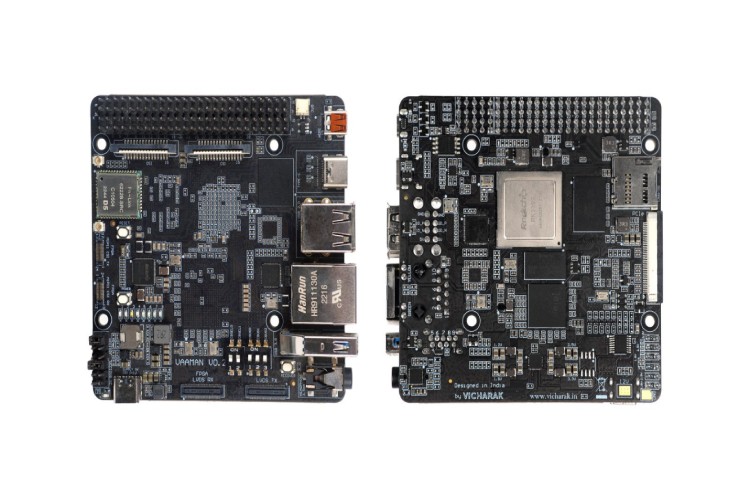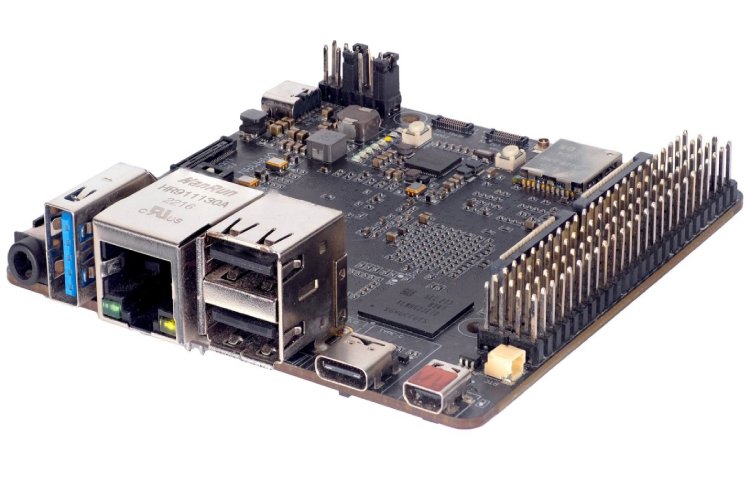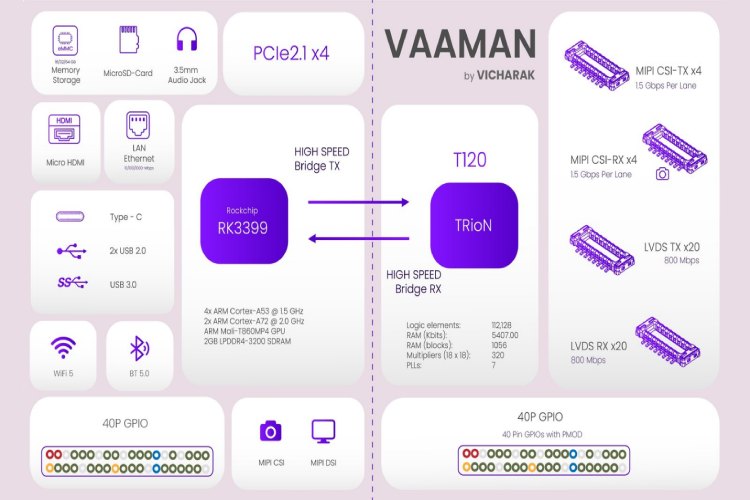
The Vaaman is an open-source edge computing board said to be a game-changer in edge computing because of its reconfigurability. Developed by Vicharak, this advanced computing board stands out with its six-core ARM CPU and an onboard FPGA with 112,128 logic cells, delivering unparalleled hardware acceleration and parallel computing performance. Vaaman's design is optimized for a variety of applications, featuring a 300-MBps link between FPGA and CPU. This makes it an ideal solution for challenges previously unmet by existing products. The board's versatility is further enhanced by its extensive range of interfaces, including PCI, HDMI, USB, MIPI, and more, catering to a wide array of needs in edge-computing scenarios.

The Vaaman comes with a Rockchip RK3399 SoC with an option for either 2 or 4GB LPDDR4 RAM. The Trion T2o from Efnix is the FPGA used in the Vaaman. The board also comes with standard features such as built-in eMMC storage, 4 lane PCIe 2.1, dual-band Wifi, Bluetooth 5.0, HDMI 2.0, Type C DP. MIPI-DSI port,2x USB 2.0, 1x USB3.0, Gigabit ethernet, MicroSD card slot, 3.0mm Audio jack and a 40 pin GPIO header. With all these, Vaaman stands as a robust solution for diverse computing needs, making it a better choice for Edge AI and ML acceleration applications. Vicharak is said to be working on a custom platform for the Vaaman called “Gati”, which will enable custom end-to-end solutions, and enable convolutional neural networks (CNN) exclusively on Vaaman. Furthermore, Vaaman supports pre-built images for Android, Debian, and Ubuntu, enhancing its compatibility and user experience. The board is set to launch through Crowdsupply, and the company promises to release schematics of the board after completing fulfilment to backers.

One more advantage of choosing the Vaaman is that the company is planning to launch an application on top of Vaaman, which enables easy-to-configure serial peripherals. This is intended to address the limitations of serial peripheral technologies like UART, I2C, CAN, 1-Wire, and SPI. Traditional board designs are often hampered by fixed numbers of interfaces, but Vaaman transcends these boundaries, offering unparalleled adaptability through its FPGA capabilities.
As per Akshar Vicharak's exclusive note to CircuitDigest “The core innovation lies in a forthcoming application designed exclusively for Vaaman. This application allows users to emulate various interfaces on the FPGA using a straightforward JSON configuration. The process is efficient and user-friendly, automatically uploading the required bitstream to the FPGA and integrating the emulated peripherals into the Linux kernel.” For instance, users seeking to emulate multiple interfaces such as UART, SPI, I2C, and CAN can do so with ease. The application reconfigures the FPGA, adjusts Linux drivers, and instantly makes these interfaces available within the Linux environment. This level of versatility is unprecedented in the serial peripheral and gateway domains. This new application, set to launch soon on crowdsupply, will be freely available to all Vaaman users, exemplifying Vicharak's commitment to innovation and customer value.

